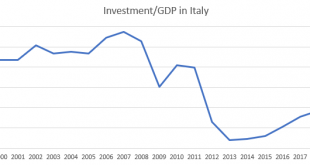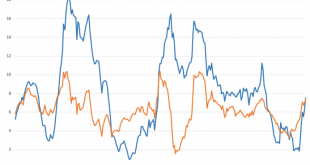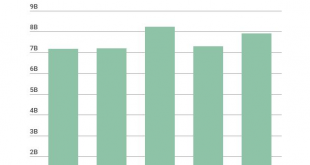When Mario Draghi’s tenure was approaching its end, I argued for a sterner governor for the European Central Bank (ECB); hence, I was not even slightly enthusiastic when Draghi’s successor turned out to be Christine Lagarde—a patent dove, as can be inferred from her ideological proximity to a famous Keynesian like Olivier Blanchard. However, I am here to defend the stance she took with her March 12 speech—in which, addressing the economic turmoil spurred by...
Read More »Diseases Are Bad. Government-Forced Shutdowns Are Often Worse.
However high the death rate of the COVID-19 coronavirus becomes, the governmental response to the threat will be even more dangerous. If the current blockade of economic life continues, more people will die from the countermeasures than from the virus itself. In a short time, the basic supply of everyday goods will be at risk. By interrupting the global transport and supply chains, important medicines will be missing and food supplies will be insufficient. This is...
Read More »In Spain You Can’t Use Your Own Back Yard. Police Make Sure of It.
The last days and weeks of the coronavirus epidemic give an interesting insight into the human psyche. Elementary liberties are restricted all over the world, such as the freedom of movement or private property. Yet most people accept these restrictions without blinking, as the state declares their indispensability. A chronology of the events in Madrid: on Sunday, March 8, a large World Women’s Day demonstration against the alleged rule of the Patriachate was held....
Read More »No, Technology Shocks Aren’t Behind Recurring Business Cycles
Economic fluctuations, also known as business cycles, are seen as being driven by mysterious forces that are difficult to identify. Finn Kydland and Edward C. Prescott (KP), the 2004 Nobel laureates in economics, decided to attempt to find out what these forces were.1 They hypothesized that technology shocks are a major factor behind economic fluctuations and demonstrated that a technology-induced shock can explain 70 percent of the fluctuations in the postwar US...
Read More »Government Is No Match for the Coronavirus
The coronavirus is reminding everyone that you cannot rely on government and that ultimately it is the private sector that will provide the solutions. Many nonmedical government officials and members of the media are predicting massive cases of COVID-19 and death, when in fact no one can predict the outcome. What we do know is that government has created a full-blown national panic, when at this point the normal flu season is far more deadly. Decentralization is...
Read More »Financialization: Why the Financial Sector Now Rules the Global Economy
To read or watch the news in today’s world is to be confronted with a wide array of stories about financial organization and financial institutions. News about central banks, interest rates, and debt appear to be everywhere. But it was not always the case that the financial sector and financial institutions were considered so important. Public policy in general was not always designed with a focus toward propping up banks, keeping interest rates low, and ensuring an...
Read More »Money Supply Growth Climbs to 37-Month High
The money supply growth rate rose again in February, climbing to a 37-month high. The last time the growth rate was higher was during February of 2017, when the growth rate was 7.9 percent. During February 2020, year-over-year (YOY) growth in the money supply was at 7.49 percent. That’s up from January’s rate of 6.32 percent, and up from February 2019’s rate of 3.20 percent. The increase in money supply growth in February represents a sizable reversal of the trend...
Read More »The Fed’s Massive Injection of “Liquidity” Also Benefits Uncle Sam
There’s a lot to be said regarding the Fed’s surprise announcements—including its Sunday surprise of $700 billion in renewed QE and the complete elimination of all reserve requirements for banks—but here let me just focus on one element: the tendency for Fed officials and all the pundits to treat injections of “liquidity” as if they don’t count as much when distorting the economy. I’ve seen some analysts literally call the Fed’s repo operations “free” as opposed to...
Read More »Modern Monetary Theory Is an Old Marxist Idea
Modern monetary theory, or MMT, has been getting a lot of attention lately, often celebrated as a revolutionary breakthrough. However, there is absolutely nothing new about it. The very basis of the theory, the idea that governments can finance their expenditures themselves and that therefore deficits don’t matter, actually goes back to the Polish Marxist economist Michael Kalecki (1899–1970). MMT as a Centralization Tool MMT says that the national debt means that...
Read More »The CDC’s Budget Is Larger Now Than Under Obama
This is how the budget process in Washington begins. Step one: the president submits his budget to Congress. Step two: Congress puts the president’s budget in a drawer somewhere and forgets about it. Step three: Congress passes a budget it likes instead. This reality, however, has been conveniently ignored in recent weeks. Some pundits and politicians have claimed that Donald Trump “gutted the CDC.” Trump has been busy “slashing the government agencies” that combat...
Read More » Swiss Economicblogs.org
Swiss Economicblogs.org









